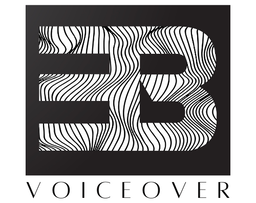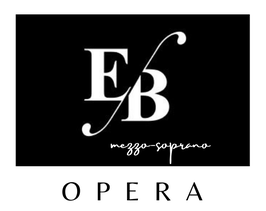Medical + Healthcare NarrationYour medical, healthcare, and pharmaceutical narration needs a voice that makes the complex sound effortless, and expresses your message with authentic feeling.
My unique background as an opera singer, linguist, and actor gives me the critical edge needed to engage your listeners. With a naturally articulate voice that ranges from authoritative to genuinely warm, I make sure your copy conveys competence and trustworthiness with every word. |
Expert Medical Narrator Trusted by Brands you KnowYears of collaboration with companies like AstraZeneca, Novartis, NYU Langone, 3M, Proctor & Gamble, and others have made me an expert in highly technical copy, and emotionally compelling scripts.
Medical narration is my most requested voiceover service, and encompasses all kinds of projects in the medical, healthcare, biotech, medtech, and pharmaceutical sectors. Over the years I have voiced a wide variety of videos and trainings, including B2B marketing explainers, pharmaceutical compliance videos, VR and AR simulations, patient journeys, healthcare eLearning scenarios, podcasts, apps, and company anthems, to name just a few. Here are some samples of work I've done for clients in the past:
Agility + Emotions + Fluency = High-quality Medical Voice-overMedical and healthcare copy is uniquely demanding to read aloud, and requires a combination of vocal agility, a range of emotional tones to convey a client's message, and fluency in complex terminology. With my background as an opera singer, linguist, and actor, I bring an essential and unique skillset to the scripts I read, helping listeners better connect with your content.
Vocal Agility—the Key to Lifting Words Off the PageVocal agility is the vocal flexibility required to sound expressive, and meet the technical demands of a piece of copy. It describes the ability and ease with which one can speak high and
low, fast and slow, or loud and soft. Lack of vocal agility results in monotone narration, and listeners quickly tune out when they hear this kind of robotic reading. Your narration should never sound dry or flat, even if your script is highly technical or academic. By varying my vocal intonation to emphasize keywords, I lift your words off the page and hook your audience. This dynamic style helps listeners comprehend your content more easily. Speed, Clarity, & Stamina—the Hallmarks of Breath ControlBreath control is the #1 technique needed to read words quickly and clearly. It also allows me to read long sentences without having to breathe at awkward places, and to narrate for many hours continuously without getting prematurely tired.
That kind of vocal athleticism is made possible by breath control. For over two decades, I have trained in diaphragmatic breathing, which helps me not only hit my high notes when singing, but also enables me to read long sentences, or extremely fast copy without interrupting the line with breaths. Emotional Tone that Helps Listeners Connect to Your MessageTone is a voiceover term that refers to the emotional qualities conveyed through the voice. Because humans are feeling creatures, there is no way to speak without some emotional tone. So, regardless of the content, in order to reach listeners, every script needs the right feeling.
A highly technical explainer might use an authoritative & engaging tone, while a patient-facing hospital ad might require a trustworthy & caring tone. A script can also have different tones for different sections. For example, an animated marketing video might employ a problem-solution script, and need a concerned tone at the beginning, and a relaxed tone for the second half. Effortless Pronunciation of Medical TerminologyClear enunciation and accuracy on the first take are the hallmarks of my medical voiceover style, and stem from my years as an opera singer. In medical scripts (and on the opera stage), precise pronunciation is essential for communicating competence and trustworthiness. And fluency in the terminology is the difference between an efficient recording session, and a long drawn-out one.
For me, preparing medical copy for narration is similar to learning an opera role in French, Italian, or Russian. I look for the words that are new to me, and listen and speak them until I gain fluency. However, I am not just concerned with effortless and accurate pronunciation of complex terms, I also make sure I fully understand the meaning of what I am saying. By the time I go to record your script, I sound like an expert in the material I'm narrating. Understanding your Audience & VisionAs a seasoned healthcare narrator, my process begins with knowing about your target audience. I typically use a different vocal style for communicating with doctors and scientists than I do with patients. And my approach for investors and corporate boards is not same as what I use for field trainers and medical students. The more I know your target audience, the better I can tune in to your listeners.
In addition, seeing your vision for the final product is critically important to me. Is it a medical conference kick-off anthem to be shown to thousands, or an internal end-of-the-year company thank you? Knowing more about how the content will be used can help us discover the right vocal style faster. Additionally, if you've already selected music, have a rough-cut of the video, or the storyboard, feel free to share it with me, so I can better imagine the vibe you're envisioning for the voice. |


